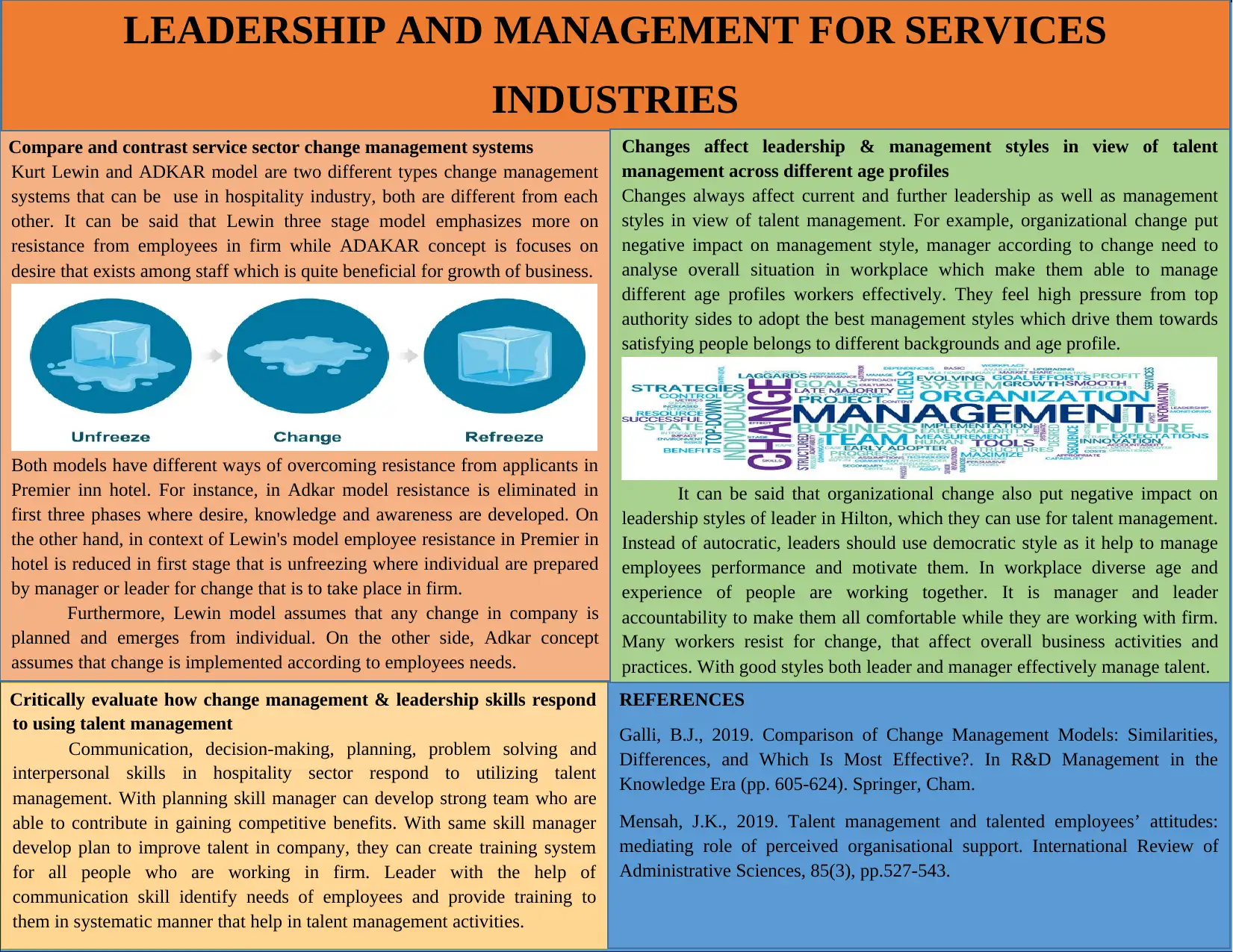Comparative Analysis of Change Management Models in Hospitality Sector
VerifiedAdded on 2023/01/11
|1
|570
|84
Report
AI Summary
This report provides a comparative analysis of change management models, specifically focusing on the Lewin and ADKAR models, within the context of the hospitality industry, using Premier Inn as a case study. It examines how these models address employee resistance and facilitate organizational change. Furthermore, the report evaluates the impact of leadership and management skills, such as communication, decision-making, and planning, on talent management within the hospitality sector. It also explores how organizational changes influence leadership and management styles, particularly in relation to managing diverse age profiles and experiences among employees. The report emphasizes the importance of adapting leadership approaches to effectively manage talent and address potential resistance to change within the workplace.







![[object Object]](/_next/static/media/star-bottom.7253800d.svg)